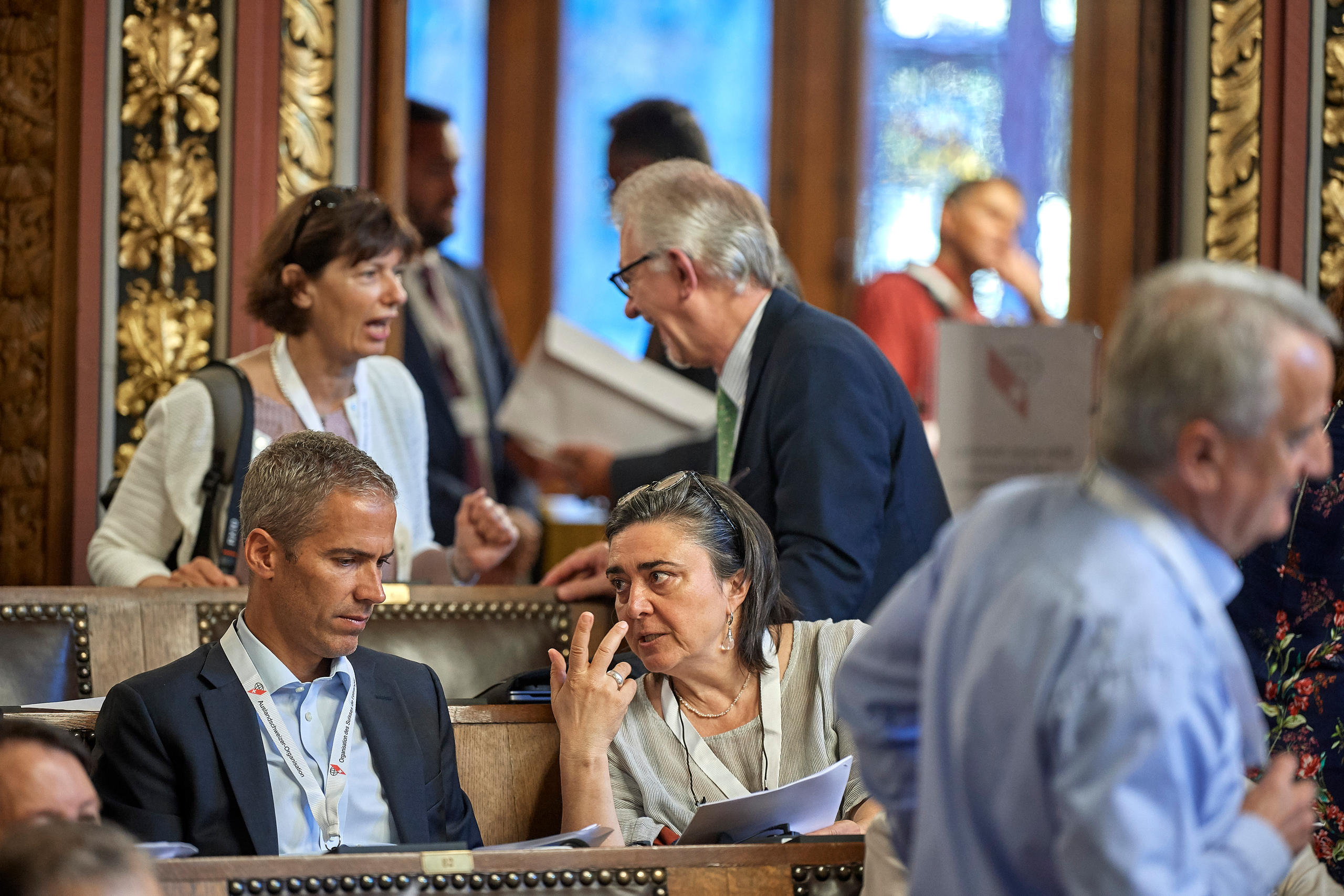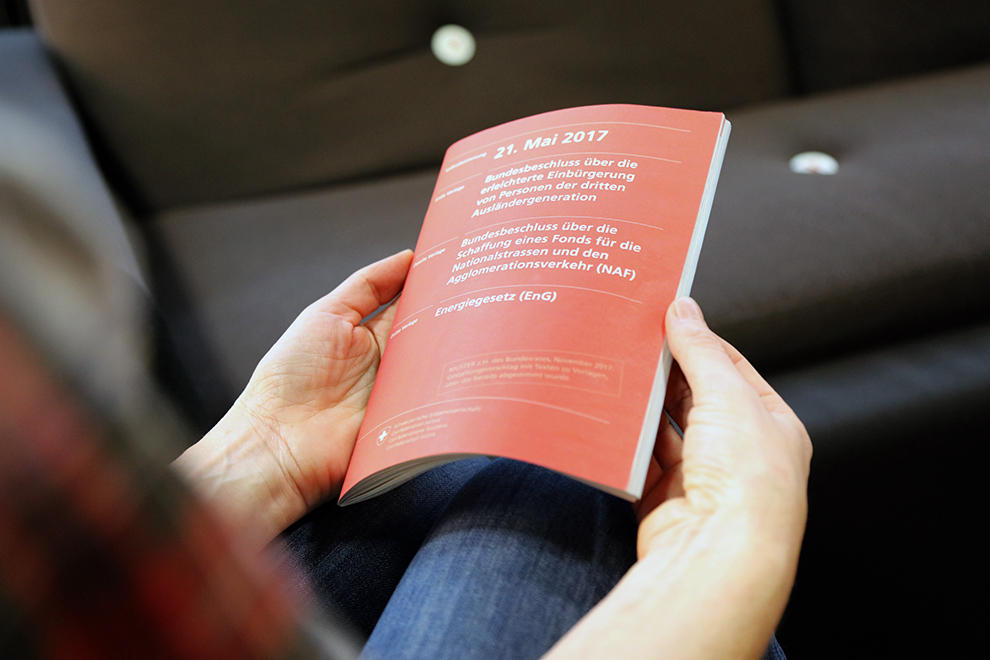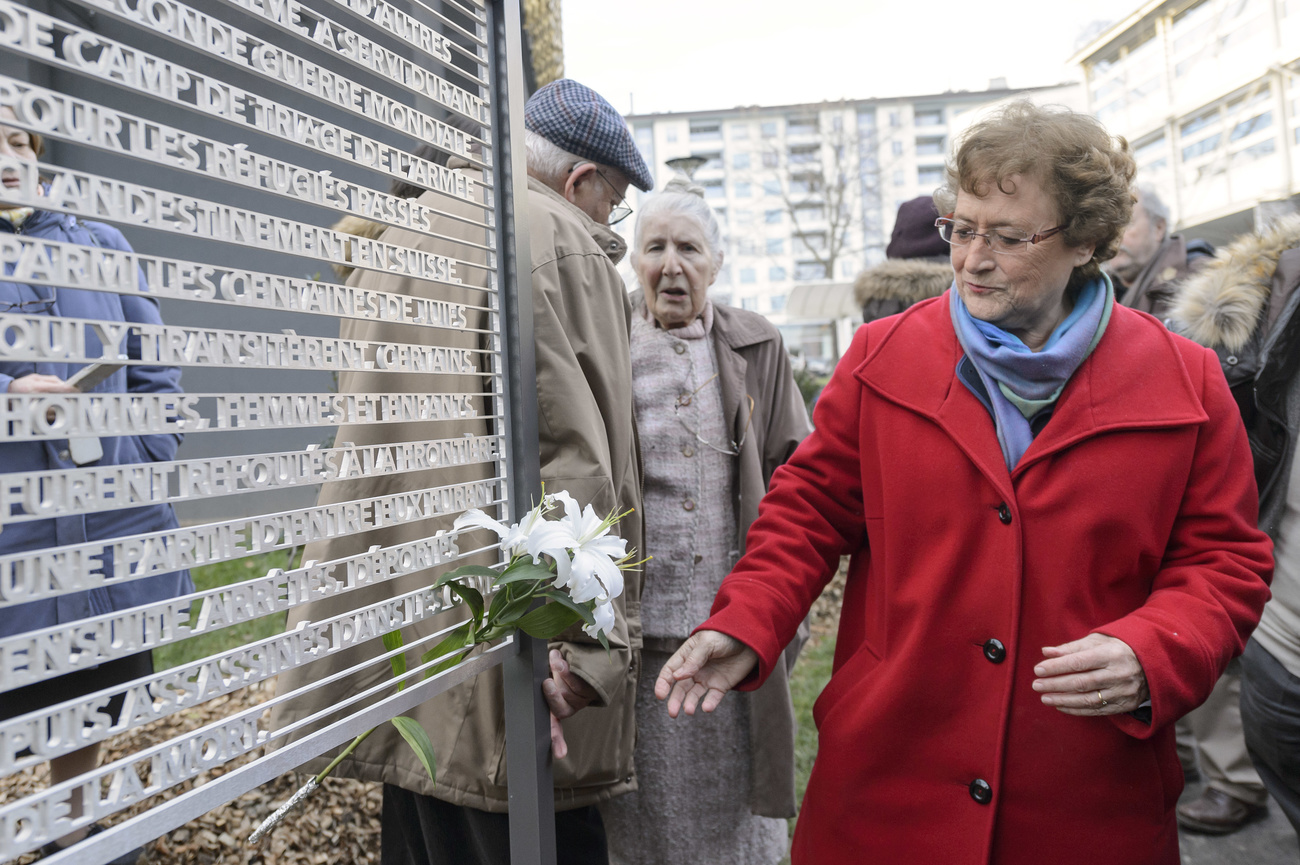
‘It’s a venerable Swiss tradition to emigrate’

Remo Gysin will step down as President of the Organisation of the Swiss Abroad (OSA) at the end of the month. He shares what he learned during his six years in office.
SWI swissinfo.ch: How does it feel to be at the end of your term as the President of the OSA?
Remo Gysin: It was time. I had planned to step down a year ago. But then the pandemic happened.
SWI: You have been involved for 21 years with OSA. Do you remember your first impressions?
RG: What fascinated me from the beginning was this unique worldwide organisation.
SWI: At the same time it’s a long-established Swiss organisation, embodying a kind of old-style Swiss spirit.
RG: Indeed. We saw that on the “day of the Swiss abroad” at the Fête des Vignerons (winegrower’s festival held every 20 years) in 2019 and at the OSA’s centenary celebrations in 2016 – two high points of my time in office. It’s a venerable Swiss tradition to emigrate. That holds for numerous occupations. I know a cheese-maker who emigrated to Bhutan, fell in love, and stayed. He brought his know-how and creativity there. The hamlet where he settled acquired electric power and running water soon after.
SWI: An emigrant like that used to leave the country for good. But things have changed. Today many people go away for a few years and then return home. Does that help OSA when you are trying to defend the political rights of the Swiss abroad?
RG: The young generation has a vital interest in contributing to developments back home. Today you see people coming and going. Stays abroad are shorter. The connection with Switzerland stays active.

More
Swiss Abroad Council needs to keep up with the times
SWI: These people are highly mobile and cosmopolitan. Are they less Swiss for that?
RG: Not at all. They act like a sort of leaven, which does the country good. They bring outside views, experience, and even solid personal connections. That is worth a lot to this country. For me it was always a highlight when I met a Swiss abroad who had this amazing mixture of Swissness and openness to the world at large.
SWI: It is noticeable, too, how attached these expatriates are to maintaining a bank account back home in Switzerland.
RG: They are right to do so, and given the situation with payment of pensions and reimbursements from health insurance companies, they often have no choice. Financial instability and the risk of money losing its value abroad means it makes sense to have a bank account in Switzerland. But also the need to make payments of various kinds, say for the upkeep of houses or family plots in cemeteries. Many Swiss abroad had their accounts with Swiss banks terminated or were not allowed to open an account. The Geneva Cantonal Bank is now a partner that makes a real effort. I don’t see the big banks doing that much.
SWI: The bank fees seem a bit arbitrary too, don’t they?
RG: Yes, and the same can be said of requirements to deposit CHF 100,000 or more. Where there’s a will, there’s a way – but there is a lack of will. Even in the case of the government-owned Postfinance, I regret to say. The OSA and several parliamentarians have raised this issue with the federal government from time to time.

More
Expats between bank accounts and welfare benefits
SWI: The government brushes off the situation as independence of the private sector.
RG: That has its limits. Basic needs of people are more important than just maximising profits.
SWI: What sort of an organisation will your successor inherit?
RG: The OSA is a well-established organisation with good relations with private- and public-sector institutions. It looks forward to the challenges of the future, and can count on 650 active Swiss organisations that belong to it.
Born in 1945 in Basel, Gysin studied economics and worked as a business advisor. From 1984 to 1992 he was a member of the cantonal government in Basel City.
In 1995 he was elected to the national parliament as a member of the left-wing Social Democrats, and sat in Bern until 2007.
Gysin campaigned for Switzerland’s membership of the UN, as well as taking part in various international missions and election observation delegations.
He has been a member of the Council of the Swiss Abroad since 2001.
SWI: What is on the OSA agenda for the future?
RG: Besides our ongoing concern with e-voting, social insurance and banking policies, we expect to continue prioritising Swiss foreign policy. It is also an aim of ours to make OSA better known within Switzerland and to give stronger support to the Swiss organisations in other countries.
SWI: What’s the unique feature of this organisation?
RG: That we come together, rising above our different political beliefs, and look after the interests of the 776,000 Swiss abroad.
SWI: Is it always easy to reach a consensus?
RG: Of course there are different viewpoints in OSA, and areas of disagreement. This is apparent when we deal with our country’s relationship with the European Union or – on another level – whether English should be used during discussions in the Council of the Swiss Abroad.
SWI: Let’s look at some of the setbacks. Most recently, Switzerland’s withdrawal from negotiations on the framework agreement with the EU, the banking issue, and e-voting were defeats during your term of office.
RG: All these developments were outside the sphere of influence of OSA. The setbacks as regards e-voting were hard to take for us. Now there is some movement again. We can only hope that the federal government will really take charge. What worries me the most, though, right now, is the European issue. The Swiss relationship with European Union is crucial. The framework agreement has been turned down. The “bilaterals” are now being called into question and are even being dismantled here and there. Swiss politicians are giving the impression these days that they are more concerned about economic relations with the US and China than with Europe. That is a big disappointment.
SWI: For you or for the Swiss abroad?
RG: For the whole of Switzerland. We are a part of Europe. Over 60 percent of all Swiss abroad live in Europe. If the free movement of people, as well as common educational programmes, are to be called into question, it’s disastrous for social and professional prospects and for family reunification.
SWI: You were particularly convinced that a Swiss Holocaust memorial should be built. The project is now under way. Parliament has requested it from the federal government. Are you pleased?
RG: Yes, very much so. I look forward to seeing it happen.

More
Why can’t voting papers be sent to the Swiss Abroad earlier?
SWI: You said – in reference to the memorial – that “the Swiss border should not be the place where Swiss history ends.” What did you mean by that?
RG: For a long time, Swiss history stopped at the borders of this country. The Swiss abroad are particularly aware that Switzerland does not end at the border, however.
SWI: What else would you like the OSA to have achieved?
RG: We were not able to boost the representative nature of the Council of Swiss Abroad, regrettably. Pioneering countries like Mexico, Australia and Britain elected their delegates by e-mail in an exemplary fashion. Other countries did not follow though. It’s a great pity, because the Council of Swiss Abroad needs to be representative of the whole Swiss diaspora.
SWI: Why is being representative so important?
RG: Because the recognition OSA gets and the influence it has depend on being representative. If only the members of Swiss associations – no more than 2 to 4 percent of all Swiss abroad – have the right to vote, the requirement to be representative is not truly fulfilled.
SWI: Do you have a solution?
RG: No, but at least a lesson has been learned from what has happened so far: the federal government and the OSA need to be more supportive of the Swiss associations in future, and they need to accept the necessity of wider voting participation and amend their bye-laws accordingly.

More
Proposal for an official Swiss Holocaust memorial gets a boost
SWI: The Council of the Swiss Abroad is a bit like a political party, made up of delegates from the local level. It makes its views heard like a political party too. It might even be regarded as such, might it not?
RG: The 140-member Council of the Swiss Abroad is actually more like a parliament. The members of it are elected in regional constituencies, which then make up a geographical delegation which is a bit like a party.
SWI: One further move could be seats in the federal parliament assigned to the Swiss abroad, as France and Italy now have.
RG: A working group studied this issue and came to the conclusion that it would be very difficult to implement. Swiss abroad have different views and attitudes, just as much as they would if they lived in Switzerland. If there was a group of representatives called “Swiss Abroad”, the consensus they would be able to achieve on most parliamentary business would be very slight.
SWI: So representation in parliament is no longer an aim?
RG: Yes it is but it is most likely to be achieved in the traditional way by getting people as candidates on cantonal party lists. Another model would be to treat Swiss abroad around the globe like a canton, electing its own representatives to the federal parliament. Then the Swiss abroad would have a guaranteed parliamentary presence in both houses of parliament. That is a vision worth looking at.
Translated from German by Terence Macnamee

In compliance with the JTI standards
More: SWI swissinfo.ch certified by the Journalism Trust Initiative
















![The four-metre-long painting "Sonntag der Bergbauern" [Sunday of the Mountain Farmers, 1923-24/26] had to be removed by a crane from the German Chancellery in Berlin for the exhibition in Bern.](https://www.swissinfo.ch/content/wp-content/uploads/sites/13/2025/12/01_Pressebild_KirchnerxKirchner.jpg?ver=bb19e376)















Join the conversation!